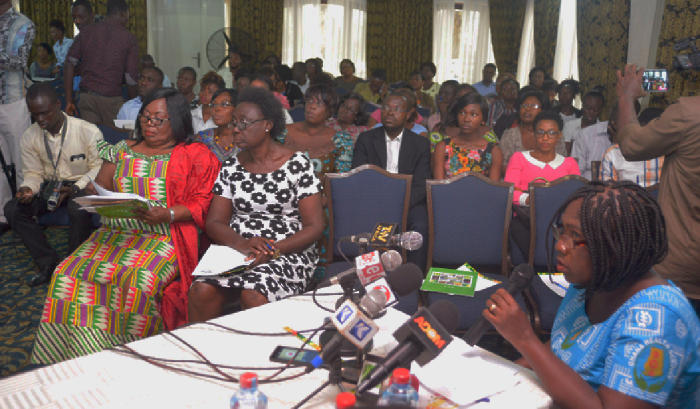
Breastfeeding gives children best start in life. Let’s promote it
In September 2015, the world's leaders committed to 17 Sustainable Development Goals (SDGs), to be achieved by 2030, aimed at ending poverty, protecting the planet and ensuring prosperity.
The SDGs build on the Millennium Development Goals (MDGs) and cover a range of issues on ecology, economy and equity.
There are links between the Sustainable Development Goals (SDGs) and breastfeeding, which is a natural and low-cost way of feeding babies and children. It is affordable for everyone and does not burden household budgets compared to artificial feeding.
Women’s unique right
Described as a unique right of women, the breastfeeding experience, which is the great equaliser, giving every child a fair and best start in life, can be satisfying and empowering for the mother as she is in control of how she feeds her baby.
World Breastfeeding Week is celebrated every year from August 1 to 7 to encourage breastfeeding and improve the health of babies around the world.
At a press briefing to launch this year’s Breastfeeding Week celebration in Accra on Monday, speakers advocated the review of the labour laws to grant nursing mothers six months’ maternity leave, to enable them to undertake exclusive breastfeeding.
The barriers
In her presentation on the Breastfeeding Week Celebration, the National Coordinator for the Breastfeeding Programme at the Ghana Health Service (GHS), Mrs Eunice Sackey, said the three months’ maternity leave did not allow mothers to fully undertake the recommended six months’ exclusive breastfeeding.
“Mothers were forced to return to work soon after birth, and when they do, they have less time to care for their babies and breastfeeding may decline, leaving the children to be more ill often,” she stated.
In addition, she said, other barriers to breastfeeding included inadequate access to skilled breastfeeding, aggressive marketing of breast milk substitutes, lack of lactation support from male partners and inaccurate information from health providers.
Linking breastfeeding to the SDGs, she explained that new evidence presented in the Lancet (UK medical journal) confirmed that optimal breastfeeding could save 823,000 child lives and add $302 billion to the global economy annually.
Breastfeeding lays foundation for good health for all children both in the short and long term and also benefits mothers, Mrs Sackey said, and added, nonetheless, global breastfeeding rates had remained stagnant for two decades.
Globally, less than 40 per cent of children less than six months are exclusively breastfed, while in Ghana, statistics from the GHS show that as of 2012, breastfeeding was 63 per cent and 52 per cent as of 2014.
“Facilities must be conducive”
To narrow the gender gap at workplaces, Mrs Sackey said women needed support to combine their productive and reproductive roles, including breastfeeding such as paid maternity leave, breastfeeding breaks, flexible working arrangements and lactation rooms.
She cited the new MTN building at Ridge and Barclays Bank branch at High Street both in Accra as some of the few facilities with conducive environment for mothers to breastfeed their children.
The Osu Asafoatse, Nii Dzahne IV, in his remarks, indicated that as a matter of urgency, policy makers must review the law to ensure that maternity leave was extended to six months for the sake of the children.
“Discard negative notion”
The Chief of Health and Nutrition at UNICEF, Dr Victor Ngonglah, also supported the call for the six months’ maternity leave for mothers saying, “proper breastfeeding reduces diarrhoea and pneumonia in children”.
He urged young women to discard the negative notion that breastfeeding destroyed their beauty and body and feed their babies properly with breast milk.
